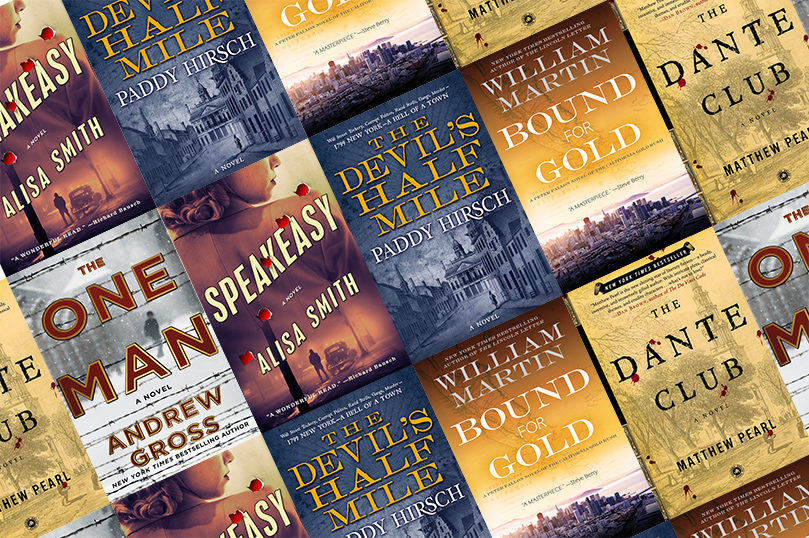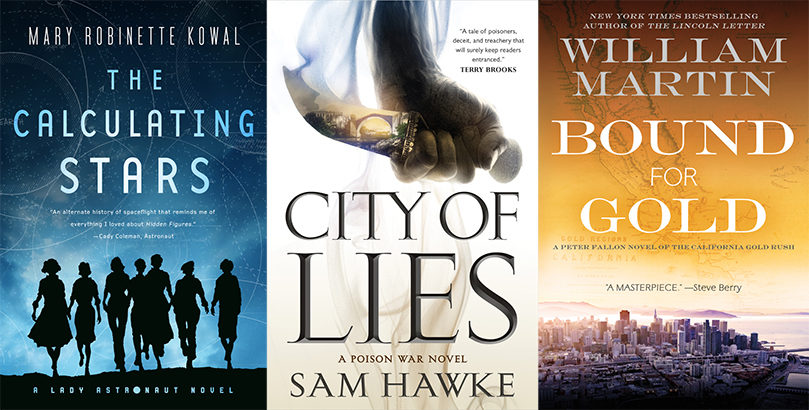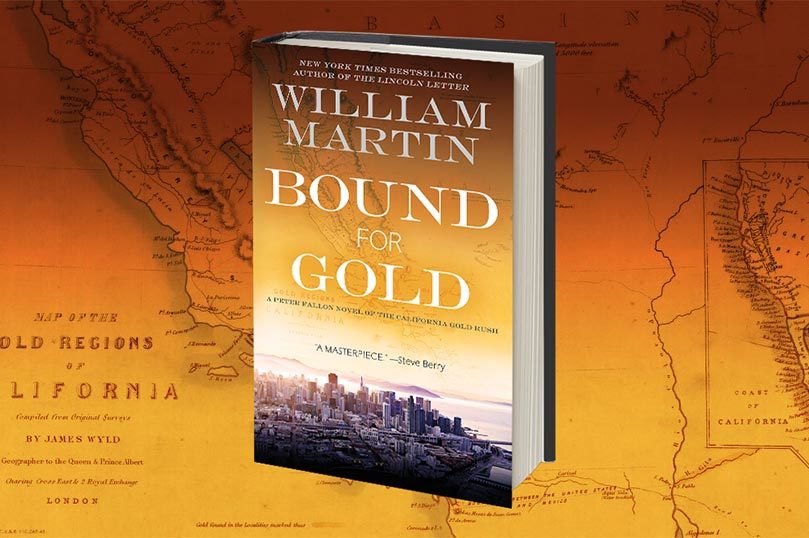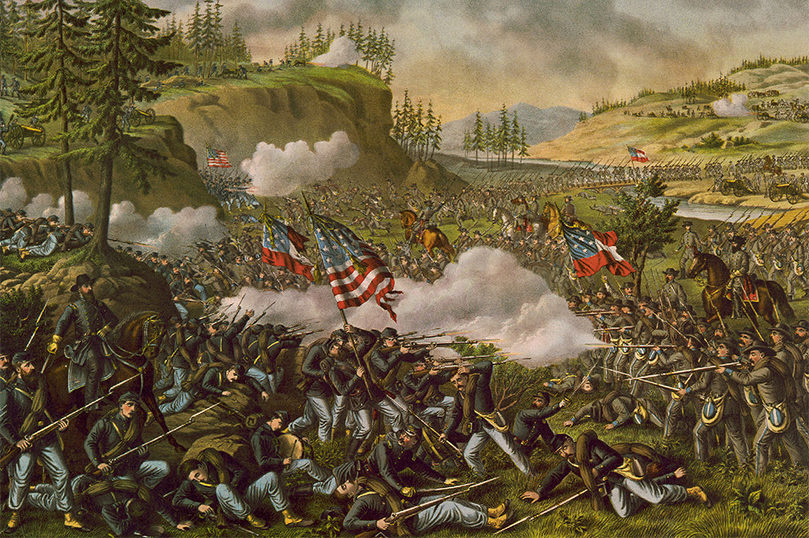
On the Road: Tor/Forge Author Events in August
Tor/Forge authors are on the road in August! See who is coming to a city near you this month.

Tor/Forge authors are on the road in August! See who is coming to a city near you this month.

We love both historical fiction and pulse-pounding thrillers – so here are some books that perfectly combine the two, from the end of the 18th century to the tumultuous days of World War II.

New from Mary Robinette Kowal, Sam Hawke, William Martin, and others!

Tor/Forge authors are on the road in July! See who is coming to a city near you this month.

Rare-book dealer Peter Fallon returns in Bound for Gold.

A good historical fiction novel will take you back in time and immerse you in a bygone era. And the truly epic ones–sweeping in scope and monumental in scale–will keep you there for a while.